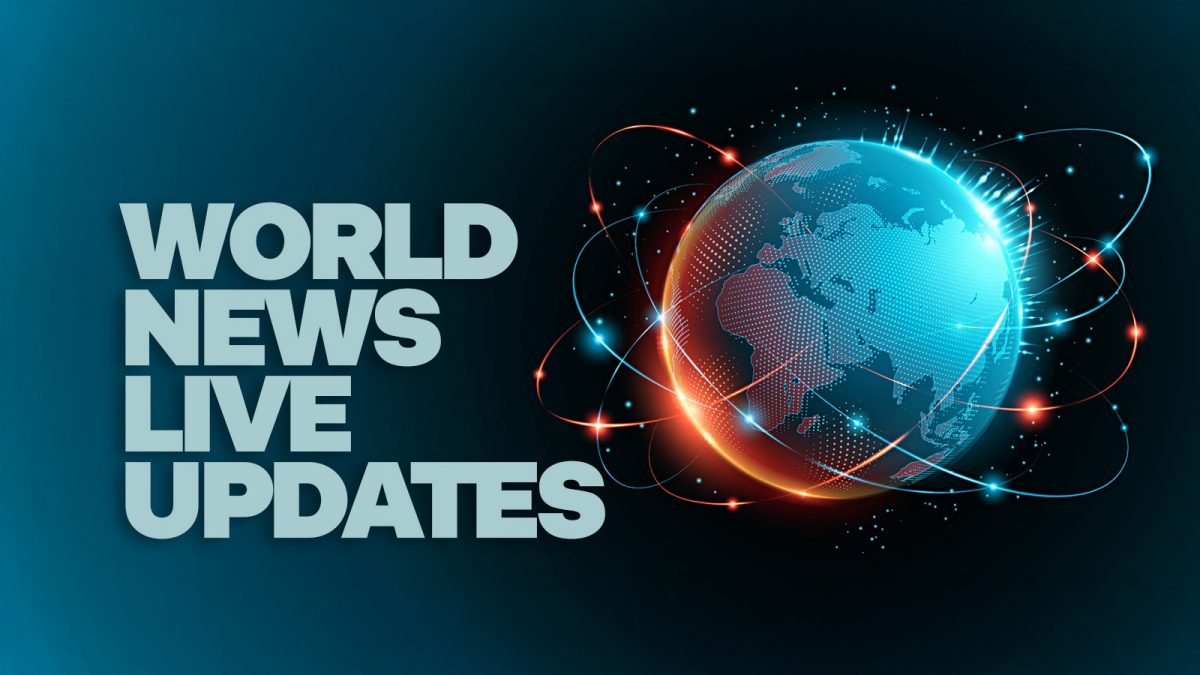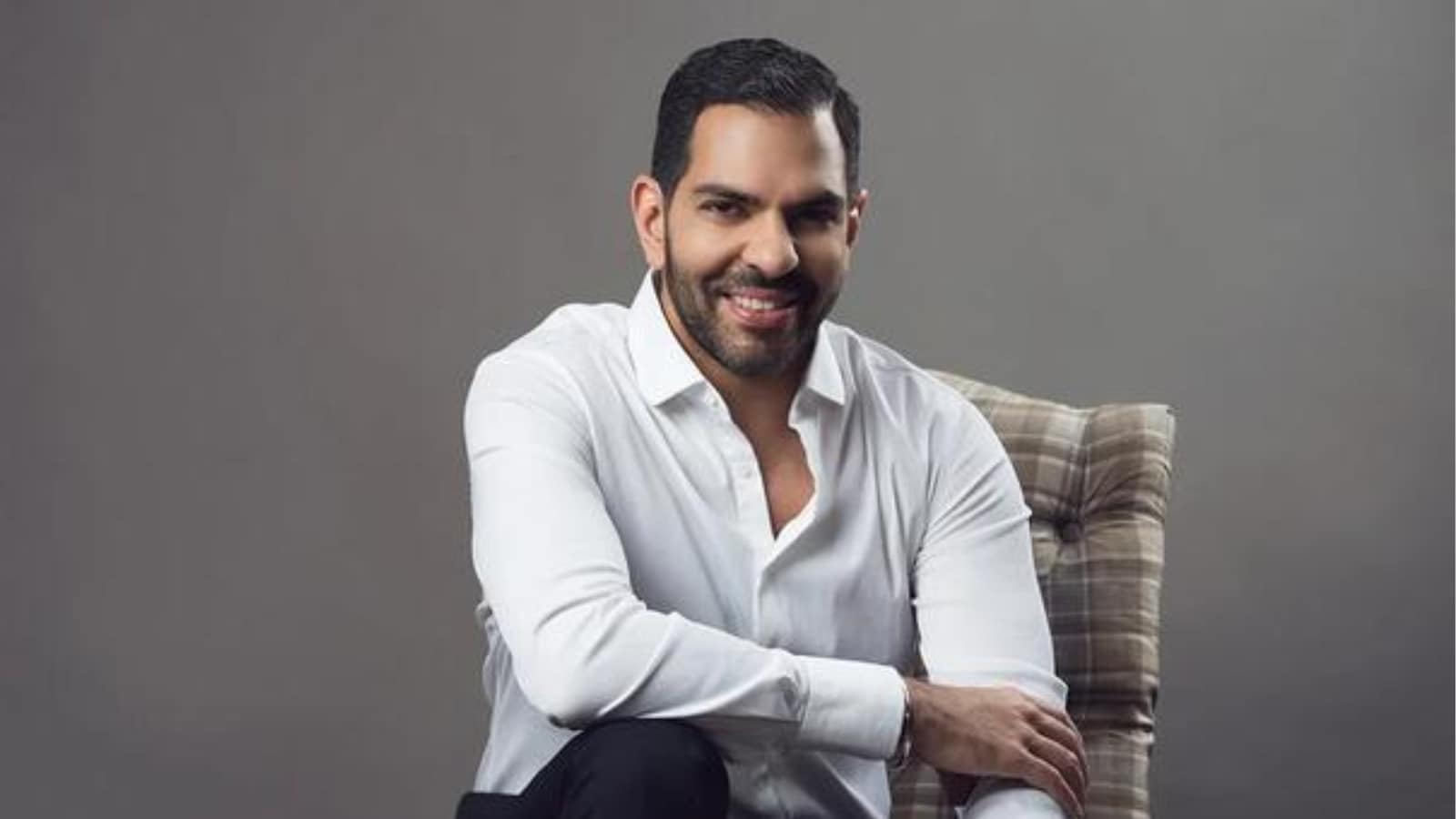Albanese meets with senior members of Trump administration to talk about tariffs
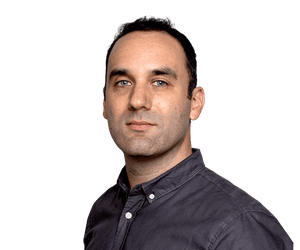
Tom McIlroy
Anthony Albanese held talks with senior members of the Trump administration at the G7 summit in Canada, a day after the US president left the meeting.
Donald Trump’s early exit from Kananaskis took some of the momentum out of the talks between world leaders in the Rocky Mountains, but in the past few hours Albanese met with the US treasury secretary, Scott Bessent, as well as the US trade representative, Jamieson Greer.
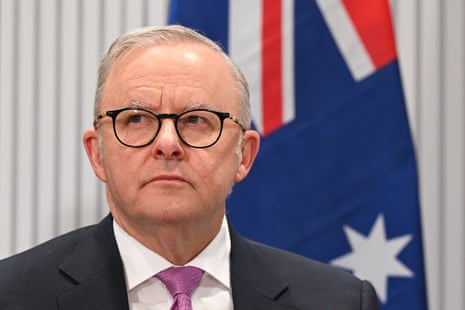
Also in the talks was the director of the US Economic Council, Kevin Hassett. The talks focused on Australia’s treatment in Trump’s tariff regime, talks the prime minister had hoped to have with the president directly.
One option for the pair’s first formal meeting is a September visit to the White House after the United Nations general assembly in New York.
Key events Show key events only Please turn on JavaScript to use this feature
Albanese expected to speak from G7 shortly
The prime minister is expected to hold a brief news conference from the sidelines of the G7 in Canada. His last press briefing aired just minutes before US president Donald Trump said he would leave the meeting a day early to deal with the fallout from the ongoing Israel-Iran conflict.
Albanese and Trump were meant to meet today.
Australian university rated first in the world for community impact

Caitlin Cassidy
Western Sydney University (WSU) has ranked first in the world for the fourth consecutive year in the Times Higher Education (THE) rankings on community impact.
The rankings, published today, placed WSU ahead of 2,526 universities worldwide. Australia also had more universities (three) in the top 10 than any other nation, with Griffith University and the University of Tasmania coming equal fourth. Ten Australian universities were in the top 50.
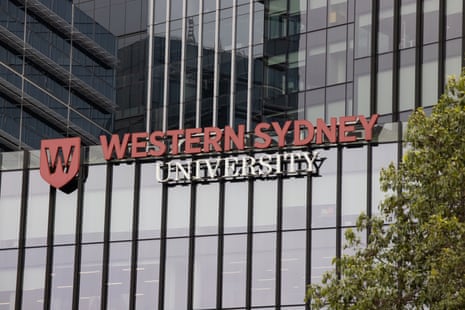
The THE university impact rankings are the only global performance tables to assess universities against the United Nations’ sustainable development goals which measure efforts to address the climate crisis, to supporting peace and justice.
THE’s chief global affairs officer, Phil Baty, said universities in Oceania were “leading the way on helping the world to a more sustainable future”.
The vice-chancellor of WSU, Prof George Williams, said universities around the world were “being urged to return to their primary role as public sector organisations delivering public good”. He said:
Unlike other rankings, the impact rankings measures universities on the practical measures they take to improve lives and deliver outcomes in communities. Western is showing the world the way.
Lifeblood’s chief medical officer says change to blood and plasma donation rules ‘very exciting day’
Dr Jo Pink, Lifeblood’s chief medical officer, said the group is very excited by the changes to its blood and plasma donation rules. She told ABC News this morning:
Every time a male donates at the moment, we ask them whether they have had anal sex with another man. That will cease, and instead, we are moving to gender-neutral rules. You asked me at the beginning why these rules were in place, and they did stem from the HIV period, which was a very difficult and sad period. And those rules were important to have in place to protect the safety of the blood supply. But as you know, things have changed now. So it’s a very exciting day for us.
Dr Pink went on:
I know that our LBGTIQ + community is very keen to donate. So I’m really hoping that they’ll blast that number out of the park and we will get heaps of donations.
The change related to the blood donation questionnaire still needs “a little bit of work” and will be implemented sometime in 2026.

Adam Morton
Murray Watt ‘personally lobbied’ Unesco over barring of WA rock art from world heritage list
Australia’s environment minister, Murray Watt, has lobbied national Unesco ambassadors in a bid to overturn a recommendation that ancient rock art in Western Australia’s north-west should not receive world heritage listing unless nearby industrial facilities shut down.
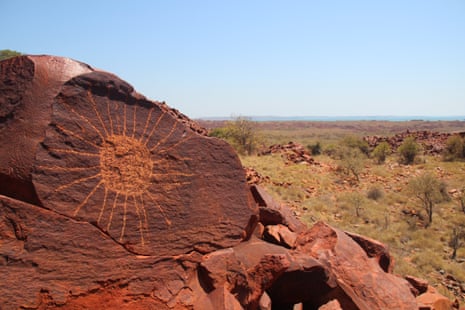
Delegations from the Australian government and the Murujuga Aboriginal Corporation, a body established to represent five traditional Indigenous language groups, plan to attend a Unesco meeting in Paris next month to argue for an immediate world heritage listing for the Murujuga cultural landscape.
The ramped-up lobbying campaign follows the UN body last month finding facilities – including Woodside Energy’s controversial North West Shelf gas processing plant – needed to be removed from the region if Australia wanted to win world heritage listing for more than a million petroglyphs, some nearly 50,000 years old.
Read more here:
Lifeblood to change sexual activity rules, opening up blood donation to gay and bisexual men
Australian Red Cross Lifeblood said today it would soon remove sexual activity wait times from its eligibility rules, opening up blood and plasma donation to most gay and bisexual men.
Current donor rules prevent many men who have sex with men and transgender women who have sex with men from giving blood or plasma if they have had sex in the past three months. But those wait times for plasma will be removed from 14 July, allowing donations for those who meet all other current criteria.
Research and modelling shows there will be no impact to the safety of the plasma supply with this change. Lifeblood’s chief medical officer, Dr Jo Pink, said:
With more than 600,0000 people estimated to be covered by the previous wait times, we now anticipate an extra 24,000 donors and 95,000 extra donations of plasma to be made each year.
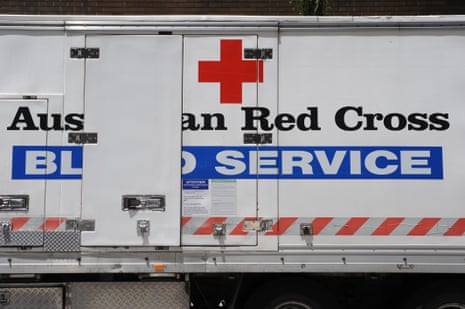
Lifeblood has been working with the Therapeutic Goods Administration to also remove questions specifically aimed at gay and bisexual men from its eligibility questionnaire. All donors will soon be asked the same questions about sexual activity, regardless of their gender or sexuality, under the plan and most people in a sexual relationship of six months or more with a single partner will be able to donate blood. People with new or multiple partners will be able to donate blood if they have not had anal sex in the last three months.
Dr Pink said:
This is a significant milestone in being able to safely reduce wait times and make it easier for more people in the LGBTQIA+ community to donate.
Blood safety is and always will be our top priority, but we know the current donation rules have been very difficult for many people in the LGBTQIA+ community. While they were put in place to ensure a safe blood supply in the past, we know that they’ve contributed to the stigma faced by the community.
More on Travis Lovett’s 468km walk to Victoria parliament
More on that 468km walk by Travis Lovett, from Portland in western Victoria to the state’s parliament in Melbourne, to mark the final report of the Yoorrook Justice Commission – the county’s first formal, Indigenous-led truth-telling process.
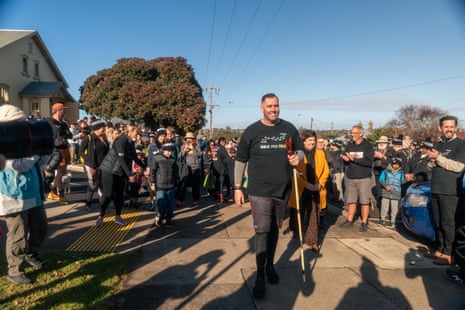
Lovett, a deputy on the commission, says he has been joined by hundreds of people on his “walk for truth”, underlining the desire to reconcile the state’s painful colonial past. He said:
We want to move forward, but it needs to be underpinned by truth and by justice.
Read more from our Indigenous affairs reporter Sarah Collard:
Albanese meets with senior members of Trump administration to talk about tariffs

Tom McIlroy
Anthony Albanese held talks with senior members of the Trump administration at the G7 summit in Canada, a day after the US president left the meeting.
Donald Trump’s early exit from Kananaskis took some of the momentum out of the talks between world leaders in the Rocky Mountains, but in the past few hours Albanese met with the US treasury secretary, Scott Bessent, as well as the US trade representative, Jamieson Greer.

Also in the talks was the director of the US Economic Council, Kevin Hassett. The talks focused on Australia’s treatment in Trump’s tariff regime, talks the prime minister had hoped to have with the president directly.
One option for the pair’s first formal meeting is a September visit to the White House after the United Nations general assembly in New York.
Chalmers downplays Albanese’s missed meeting with Trump at G7
The treasurer said it wasn’t “especially surprising” US president Donald Trump left the G7 meeting in Canada a day early to address the growing conflict in the Middle East, missing a planned meeting with Albanese. He told RN Breakfast the pair had spoken three times before, and would do so again:
There will be other opportunities to engage. I don’t think it’s especially surprising that president Trump left the G7 early. He missed meetings with a number of world leaders, including the leader of India.
Host Sally Sara asked about discussions surrounding the US’s tariffs on Australian goods. Chalmers said:
You know, these exchanges between Australia and the US are ongoing. They’ve been going on for some months now and they will continue. We will continue to speak up for and stand up for Australian workers and businesses and investors and interests as we have done so far. There’ll be other ways that we can do that, other opportunities to do that.
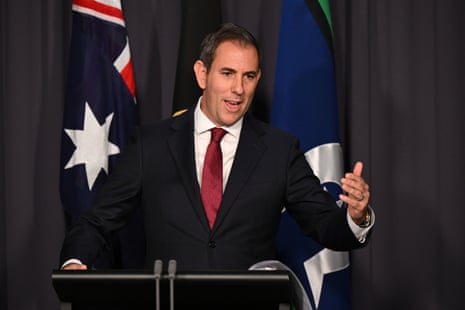
More than 1,000 Australians register to leave Israel, 870 from Iran, Chalmers says
Treasurer Jim Chalmers said nearly 2,000 Australians had registered to leave Israel and Iran amid a growing conflict between the pair over the past week. He told RN Breakfast:
I’m told by the colleagues that there are more than a thousand Australians and family members in Israel and the occupied Palestinian territories who’ve registered with us who want to get out of that part of the world, and then another 870 or so in Iran.
We’re obviously working very closely with those Australians via the Department of Foreign Affairs and Trade. We’re monitoring developments in that very dangerous part of the world closely. Obviously our major focus is on the human cost of this escalating conflict. …
And our focus, in an immediate sense, is working with those almost 2,000 Australians who’ve indicated that they want to get out of that very perilous, very dangerous part of the world right now.
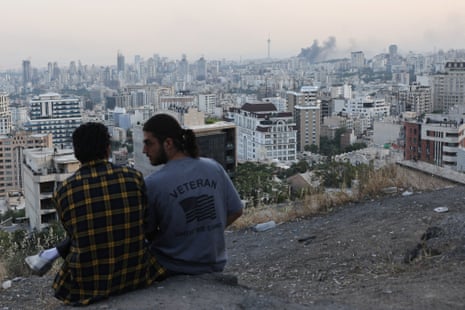
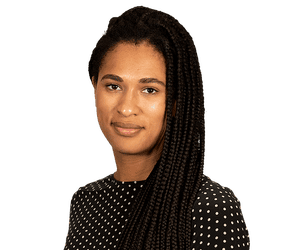
Adeshola Ore
Findings of Victoria’s Indigenous truth-telling inquiry may be used as teaching resource
The findings of Victoria’s Indigenous truth-telling inquiry, set to be handed down by the Yoorrook justice commission in the coming days, may be used as a teaching resource in schools, parties to the state’s treaty talks say.
A joint statement by the Victorian government and First Peoples’ Assembly, who are negotiating a state-wide treaty, says the parties have discussed the significance of the inquiry’s three-year process to create an official record of the state’s history.
It says Yoorrook’s official record could be a “valuable resource for teachers to use when educating students about Victoria’s history.”

Yoorrook – tasked with documenting injustices experienced by Victoria’s First Nations people since colonisation – is preparing to hand over its final report to the state in the coming days.
The commission’s deputy commissioner, Travis Lovett, will conclude his 400km “Walk for Truth” to highlight the commission’s work, at state parliament this morning.
Lovett, a Kerrupmara Gunditjmara man, is expected to present the Victoran premier, Jacinta Allan, with a message stick he has carried along the walk.

Josh Butler
Most Australians support under-16s social media ban, but many have concerns about privacy
The federal government is forging ahead with its age assurance trial for its under-16s social media ban, releasing survey results from late last year showing nearly 90% of Australians at the time backed the ban. But a survey of nearly 4,000 adults and children found a huge number of people concerned about privacy and security issues related to the new regime.
The operators of the trial will release some early findings later this week, with a final report to go to the government shortly. Ahead of that data, the communications minister, Anika Wells, has shared more information to make the government’s case for the change, showing a high level of support for the under-16s ban and stats from a survey of children showing many teens were worried about content they see online and how much time they spend on social media.
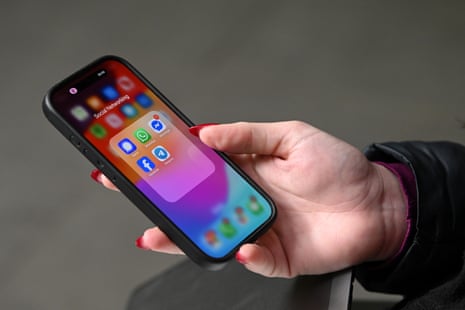
The survey of around 4,000 people – 3,140 adults and 807 children aged 8-17 – was conducted in October and November 2024. It found 88.9% of those surveyed were somewhat or very supportive of the age assurance change, with 80% willing to use such technology, at the time of the survey.
It also found 77% of people were very concerned about privacy issues and 76.8% very concerned about security issues related to implementing an age assurance framework. About half were also worried about accuracy, and also government oversight.
It said around 88% were willing to consider a government ID system to enforce the scheme, but only 37.7% were comfortable with biometric methods – which underpins several leading age assurance methods.
Of children, about 50% said they were worried about cyberbullying online, and 45% had been exposed to inappropriate contact, with another 49% concerned about what is showing up on their feeds.
In a statement, Wells said the under-16s social media ban was to come into effect from December and that she was engaging with the eSafety Commissioner about the rules to underpin the scheme:
This research shows Australians widely support our world-leading age restrictions on social media for under-16s and have strong expectations of platforms when it comes to data protection and security.
Our Government knows social media age-restrictions will not be the end-all be-all solution for harms experienced by young people online but they will make a significant impact.
Good morning, Nick Visser here to take over for Martin Farrer. Stick with us as the morning moves along.

Patrick Commins
Jim Chalmers links collapse in trust in liberal democracies to failure to lift living standards
Jim Chalmers will say today that his three priorities for Labor’s second term are boosting productivity, fixing the budget and making Australia more resilient in an increasingly tumultuous world.
The government does not believe it can tackle these three big economic challenges without buy-in from a wide range of stakeholders, from business to unions and, more broadly, without a mood for change among voters and the media.
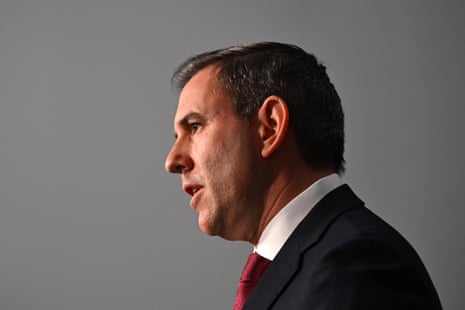
After Anthony Albanese last week announced an economic roundtable in August to build a national consensus for economic reform, Chalmers will use a speech at the Press Club this lunchtime to tie the failure to lift living standards with the collapse in trust in liberal democracies around the world.
“We have a mandate to deliver the policies and plans we took to the election, and a duty to build on them. And the best way to work out what’s next, is together,” the treasurer will say in Canberra.
The government has a “responsibility and an obligation” to revive productivity through reform, not least for the prosperity of future generations.
“That’s why productivity matters, why budget sustainability matters, why resilience in the face of global turmoil matters. It’s why reform matters,” he will say.
Treasury’s incoming government brief blamed Australia’s poor productivity performance on four things.
“Firstly, our economy is not dynamic or innovative enough. Secondly, private investment has picked up, but not by enough to make our capital deep enough. Thirdly, skills aren’t abundant enough or matched well enough to business needs.
“Finally, our changing industrial base and the growth in services – where productivity is harder to find, and where traditional measures don’t account well for quality.”
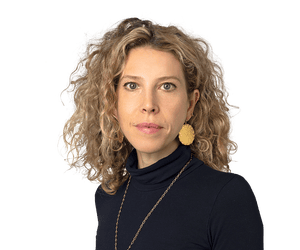
Daisy Dumas
Australia ‘calling for de-escalation’ between Israel and Iran, Marles says
Richard Marles would not be drawn on the Trump administration’s policy on the conflict between Israel and Iran and any potential support Australia may lend to its ally.
Speaking with the ABC’s 7.30 on Tuesday, the acting prime minister said Australia was “deeply concerned” about the conflict broadening and was “very much calling for de-escalation”.
He said the government wanted “to see a move towards diplomacy and dialogue … implied in that, obviously, is a very clear concern that we have about the opposite – about this escalating into some broader conflict”.

When asked whether Australia would support US involvement in the conflict militarily, Marles said:
I’m not going to go down the path of speculating but we’re not a part of this conflict.
In light of Donald Trump’s early departure from the G7 meeting in Canada, Marles said he did not know whether the prime minister had been notified that the president was cancelling Wednesday’s meeting with Albanese before it became public knowledge.
In the meantime, he advised Australians to shelter in place in Tehran.
He said 650 Australians in Iran and 600 in Israel had sought an assisted departure and that preparations were being made to start departures when airspace opened “in any form”.
For more on this read Jordyn Beazley’s interviews with Australian stuck in Iran:
Sharp rise in Australians identifying as LGBTQI
Australians are becoming more comfortable identifying as lesbian, gay or bisexual, with experts likening it to the sexual revolution of previous decades, Australian Associated Press reports.
Researchers at Charles Darwin University estimated Australia’s LGBTQI population doubled between 2012 and 2020, increasing from 3.3% to 5.8% of adults over 15.
The data came from the Hilda longitudinal survey of 17,000 Australians with responses from participants who identified as lesbian, gay, bisexual or another sexual identity.
The data was collected in 2012, 2016 and 2020.
During this time period there was a “burst of acceptance” of sexual minorities in Australia, particularly after the 2017 same-sex marriage vote, lead researcher Fiona Shalley told AAP.
If the young adults who participated in the study maintained their sexual minority identities throughout their life, Australia’s LGBTQI population could grow by about 3% each year.
The Australian Bureau of Statistics in 2024 estimated 4.5% – or about one in 20 – Australians aged 16 and over were LGBTI+, based on combined data from multiple household surveys.
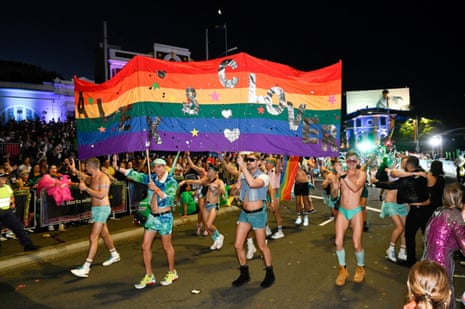

Tom McIlroy
German chancellor asks Albanese to wrap up negotiations over EU free trade deal with Australia
The German chancellor, Friedrich Merz, has asked Anthony Albanese if he can help secure a speedy end to negotiations over a European Union free trade agreement with Australia.
The pair have met on the sidelines of the G7 summit in Kananaskis and agreed to do everything they can to finalise long-running negotiations. Progress on a deal stalled in 2023 but have gained new momentum since Donald Trump launched his tariff war.
Australia has previously offered a possible removal of the luxury car tax, but wants greater access to European markets for lamb and beef exports. Geographic indicators on products such as prosecco and feta cheese also remain a point of conflict from the European side.
“Is there anything that we can do, that I can do to speed it up a little bit?” Merz asked Albanese in their meeting.
Albanese said Australia was “very keen on getting it done quickly”.
He will meet European Commission president Ursula von der Leyen later today, along with European Council boss António Costa.
The two sides are also considering a new defence and security pact which could involve military exercises and other cooperation in areas of mutual interest including foreign interference, cybersecurity, counter-terrorism, defence industries and critical technologies.

Albanese tells G7: single countries should not be allowed to control supply of critical mineral

Tom McIlroy
Anthony Albanese is at the G7 summit in Kananaskis, in Canada’s Rocky Mountains, meeting with world leaders and talking about renewable energy and artificial intelligence.
The prime minister has joined the traditional leaders family photo and held bilateral meetings with German chancellor Friedrich Merz and Japan’s prime minister Shigeru Ishiba.
He is expected to meet the British prime minister, Sir Keir Starmer, later in the afternoon, local time, and has shared a hug with Ukraine’s Volodymyr Zelenskyy.

In one of the main summit sessions, Albanese made an intervention on critical minerals, telling the summit single countries should not be allowed to control supply.
“Critical minerals are the new drivers of energy security,” Albanese said.
“Australia is blessed to have some of the largest critical minerals deposits on Earth.
“But we are increasingly finding that critical minerals markets are concentrated and vulnerable to manipulation. Producers struggle to remain competitive, and supply chains are affected by export bans and controls.”
Albanese told the leaders that Australia remains committed to working with international partners to build new energy industries, ensure regional energy security and advance the energy transition.
He said he was pleased that Australia had signed on to the G7’s critical minerals action plan, “which will support secure, diversified critical minerals supply chains”.
Welcome
Good morning and welcome to our live news blog. I’m Martin Farrer with the best of the overnight stories, and then my colleague Nick Visser will pick up the slack.
Anthony Albanese has been busy while most of us slept, with bilateral meetings (including a hug with Zelenskyy) and an intervention in a session on critical minerals. All eyes this morning will be on his upcoming chat with Keir Starmer.

Back home, Richard Marles refused to be drawn on the Trump administration’s policy on the conflict between Israel and Iran or whether Australia would weigh in on behalf of its ally. He told ABC’s 7.30 last night that Australia was “deeply concerned” about the conflict broadening and was “very much calling for de-escalation”.
Jim Chalmers will lay out his key priorities for reforming the economy when he speaks at the Press Club at lunchtime, as he confronts “intensifying pressures” on the economy. He will say his three priorities are boosting productivity, fixing the budget and making Australia more resilient.
More Australians are identifying as lesbian, gay or bisexual, with experts likening it to the sexual revolution of previous decades. A new study claims the LGBTQI population doubled between 2012 and 2020, increasing from 3.3% to 5.8% of adults over 15.

 1 month ago
1 month ago

